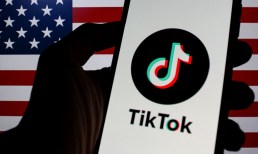Following recent cases of fraud, Comerica Bank has reportedly closed part of its federal benefits prepaid card program called Cardless Benefit Access Service.
To the drain accounts of federal beneficiaries, scamsters have allegedly taken advantage of security flaws in the bank’s service that were part of a program named Direct Express, according to reports.
“Direct Express didn’t put up a red flag, even though they had all the information about the money being wired to Florida, when we live in Massachusetts, but they just sent the money,” caregiver Jackie Densmore said, according to reports. “We were thinking it was safe because it’s the U.S. Treasury.”
The service reportedly enabled customers to access funds if they lost their cards even when they weren’t in their home states. But the program allegedly provided funds to scamsters that had posed as the recipients of benefits after accessing data belonging to cardholders.
In response, Comerica senior vice president and director of government electronic solutions Nora Arpin said, according to reports, that “criminals have found a way around the controls that we put in place to safeguard cardholders.” As a result, the bank has “taken action to shut down the Cardless Benefit Access Service and has begun an investigation,” Arpin said.
The news comes about four years after the U.S. government planned to distribute roughly 9 million government-issued payment cards with EMV chip-and-PIN versions early in 2015 in a push to increase awareness and use of the more secure cards.
Between 5 and 6 million prepaid debit cards used for issuing government payments, including Social Security and veterans benefits, were to be reissued by Comerica Bank starting in January 2015. Another 3 million cards issued to federal government employees were also to be replaced with EMV versions through the General Services Administration’s SmartPay program.
All the cards will be set up for “chip and PIN” security as a U.S. government standard under the upgrade program, rather than the “chip and signature” approach required by Visa and MasterCard for most U.S. retailers starting late in 2015, according to a White House statement.




